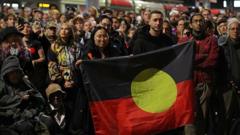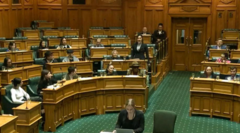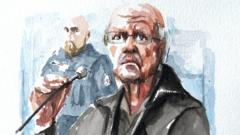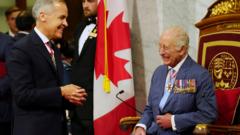The Senate voted to censure Lidia Thorpe for heckling King Charles, sparking a debate on Indigenous rights and Australia's colonial past.
Senator Lidia Thorpe Censured for Heckling King Charles During Visit
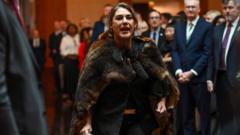
Senator Lidia Thorpe Censured for Heckling King Charles During Visit
Australian lawmakers express disapproval after Senator's protest highlights colonial impact.
Australian Senator Lidia Thorpe has faced censure from her colleagues after her disruptive protest directed at King Charles during his recent visit to Canberra. The Senate's vote, which concluded with 46 in favor and 12 against, signifies a collective disapproval of Thorpe's actions, which included shouting "you are not my King" and "this is not your land" during the King's address at the Great Hall of Parliament.
Thorpe's protest aimed to shed light on the lasting effects of British colonization on Aboriginal peoples. Following the censure, Thorpe expressed disappointment about not being allowed to respond in the chamber, attributing her absence to a flight delay.
In a statement, she emphasized the historical injustices faced by Indigenous Australians, declaring, "The British Crown committed heinous crimes against the first peoples of this country... I will not be silent."
The backlash against her actions came swiftly from various political factions, as well as some Aboriginal leaders, while activists praised her for bringing attention to the ongoing challenges faced by Indigenous communities, especially concerning disparities in health, wealth, and education.
Despite the furor, King Charles maintained a warm reception from the public during his five-day tour alongside Queen Camilla. Prime Minister Anthony Albanese commended the King's respectful engagement with Australians during times of constitutional debate.
Thorpe, an outspoken advocate for Indigenous rights, has made headlines for her activism, notably during her swearing-in ceremony in 2022 where she referred to the late Queen Elizabeth II as a colonizer. Last year, Australia rejected a constitutional amendment aimed at recognizing Aboriginal and Torres Strait Islander peoples, a process that sparked considerable political contention.
While some data indicates that a majority of Indigenous Australians supported the referendum known as the Voice, the overall support was not unanimous. Thorpe, a prominent figure in the 'No' campaign, criticized the proposal as mere tokenism, reflecting ongoing tension surrounding representation and acknowledgment of Indigenous rights in Australian governance.



